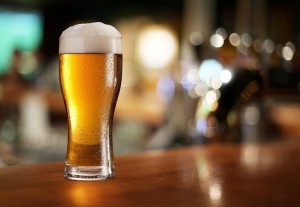Alcohol gladdens the heart…?
Even those who are unfamiliar with this quote, paraphrased from the original Bible quote, probably could attest to its validity by citing a personal experience. We drink alcohol to rejoice, to celebrate and party. As it touches almost everyone, it would be useful to talk about how much we should drink, how alcohol affects us, what problems we may face and whether there are ways to restraint its consumption.
How it affects us
Alcohol “anesthetises” the central nervous system. After it passes through the stomach and small intestine, some quantity is metabolised at the liver. The rest circulates in the body. The liver can only metabolise a certain quantity in given time. Hence the more we drink the greater the quantity of alcohol running through the body. The result is that its effect is stronger.
Apart from the documented euphoria, balanced alcohol consumption provides benefits for your heart’s health. Simultaneously increased consumption is connected heightened risk of developing cardiovascular diseases and cancer. Indeed studies indicate that the quantity of alcohol we drink and more specifically the frequency in which we do, affects the risk of having cancer. The more the alcohol we drink the greater the risk. Also increased alcohol raises triglycerides, while it may lead to high blood pressure, heart failure, and stroke and to us eating more. The latter further burdens the heart (obesity, diabetes).
What we should do
The difference may be spotted in the quantity consumed as well as the individual and family history of health. For this reason you should consider, with an expert, the benefits and dangers that stem from its consumption.
For some people, like those suffering from alcoholism or have a history of alcoholism, pregnant women or those that are trying to get pregnant, people with liver disease as well as, for those who receive medication that interacts with alcohol, etc. the benefits of alcohol consumption are less than the danger (the risk) connected with it.
People that have a normal weight, eat healthily, do not smoke, exercise regularly and don’t have family history of cardiovascular disease alcohol consumption will not offer any particular benefit. On the other hand, if you are a male with a high risk of developing cardiovascular diseases one alcoholic drink per day could reduce that risk, especially if you have low good cholesterol (HDL) and haven’t managed to raise it through diet and exercise. For a woman with a high risk of developing cardiovascular diseases things are slightly different. You should “weigh” the benefit for the heart from consuming one drink a day in relation to the small increase of the risk of developing breast cancer. If you decide to drink one drink per day make sure to consume enough folic acid (at least 600mcg/per day) since there are indications that it moderates the increased risk of developing breast cancer due to alcohol.
If you are not already drinking alcohol you don’t need to start. If you are drinking or have decided to start, do so in moderation and choose any drink you like. Below we’ll show what a unit of alcohol means, how it’s calculated and how much we should drink.
How much we should drink
Maximum quantity of alcohol per day for men is 3-4 units of alcohol and for women 2-3.
In order to determine the unit of alcohol for any drink we have to know its concentration in alcohol. The latter is written in bottles and cans as a percentage. For one litre of drink that percentage equals the units of alcohol for this drink. For example let’s assume that a drink is 5% alcohol. Out of one litre of it we may have 5 units of alcohol. A few examples are cited below:
- Small glass of wine (125ml, 12%) 1.5 units
- Medium glass of wine (175ml, 12%) 2.1 units
- Large glass of wine (250ml, 12%) 3 units
- Small beer (330ml, 5%) 1.7 units
- Large beer (500ml, 5%) 3 units
- Glass of gin, vodka, whiskey, tequila (35ml) 1.4 units
9 tips to manage alcohol better
We list some measures you may take to avoid alcohol overconsumption:
- Put a limit on how much you’ll drink. This may also be financial, meaning I’ll only spend a specific amount on alcohol per week.
- Make sure you’ve eaten before you drink. The effect of alcohol won’t be as strong.
- Avoid salty snacks because they increase thirst and possibly alcohol consumption.
- Drink water or a soft drink with your alcoholic beverage.
- Always know the concentration of your drink in alcohol. The greater that is the less of that drink you should have.
- Drink slowly and a little each time.
- Wait for your glass to be empty before you top it up again.
- Use smaller glasses.
- Inform your family and friends that you’re trying to reduce alcohol so that they may support your efforts.
References:
American Heart Association, Alcohol and heart health.
British Dietetic Association, Food facts: Alcohol.
Harvard, The Nutrition Source, Alcohol: Balancing risks and benefits.
Mayo Clinic, If you drink: keep it moderate.
National Cancer Institute, Alcohol and cancer risk.
National Health Service (N.H.S.), Alcohol.







